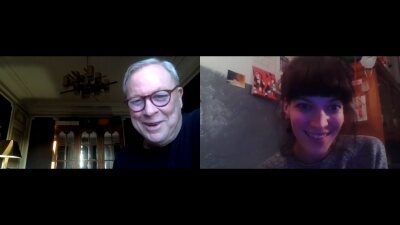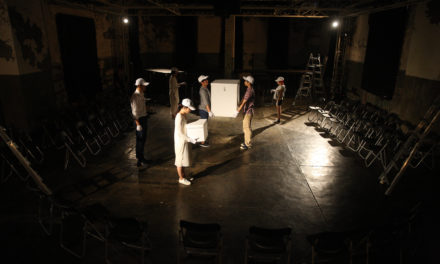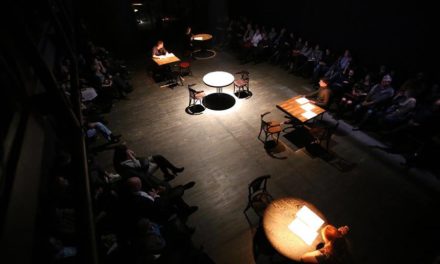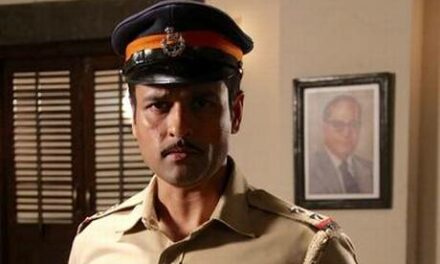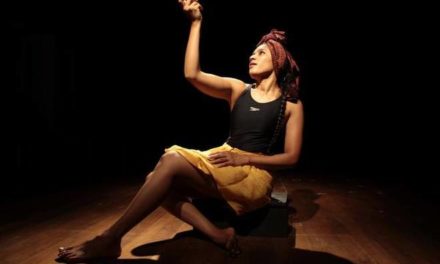He supports the Freeszfe Association and condemns the curtailment of artistic freedom. We asked Robert Wilson about the why. He also sent a message to young Hungarians. AN INTERVIEW BY PANNI NÉDER.
Revizor: How did you get informed about the Freeszfe Association and how do you keep informed about the cultural and political environment in Hungary?
Robert Wilson: I have several Hungarian friends who keep me updated about the latest events, so I feel well informed about the current situation. I was very close to Anna Lengyel; years ago I was in Budapest with the students of the Berliner Ernst Busch Academy, and I have staged with them there as well.
R: When did you decide that you’re going to release a statement concerning the cultural policies of the Hungarian government?
RW: It’s come about recently. Unfortunately, I’m not in the best health right now. I’m in Paris, and I was advised by the doctors not to travel anywhere now. And then I decided to issue the statement some days ago. I thought it’s necessary to do that.
R: Why did you think it’s necessary? Why is Hungary important to a world-famous American director?
RW: If you see a dragon coming, you pull a sword. I firmly believe that art and culture can unite us. What’s most important is that we as artists continue to work and to perform. I often think of the African-American community in the United States. They were enslaved, chained, not allowed to read a book – except the Bible. But they wrote the body of the most beautiful music ever. And that’s all about hope! There is no song in African American Spiritual which is negative. This is the root of American music, from which the genres of blues, jazz, rock and rap all stem. Only art can do this. Art unites us, politics and religion always divide us. Look at today’s newspapers, they are all about political and religious conflicts. Art can bring us together, and it is one of the few things which always remain. If we go back five thousand years in time and look at Greek, Egyptian, Chinese or Mayan culture, what do we look at? We look at their art. Art is a record of time and a window to the world. If we don’t support it, we will not have it. So it’s very important that we continue support the arts, the arts can be a window to the world. I think it is absolutely necessary to show something in Hungary. I love the country, I have been there several times and it is very important for me that the people there get to see some of my work.
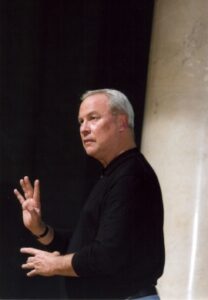
Robert Wilson. Photo by Lesley Lesley Spinks.
R: What do you think about the fact that some theatres, such as the Berliner Ensemble where you have directed several times, have canceled their participation in the MITEM Festival?
RW: I think it’s a negative statement, and I’m a more of a positive person. Why punish the people? This is our only chance to keep the door open. You have this brilliant man George Soros who started to open a door to society, and I think he’s absolutely right. He established several very important cultural centers. We have an open-door policy, too. You don’t enter my Long Island Cultural Center through a gate, and the main building has no door, just a frame. Rich, poor, Catholic, Jewish or Muslim, you can walk in at any time – the center is here for the community. I think that’s essential. Art can do that, it can bring us together in a way that politics will never do. And in that way, art serves a unique function in society. I see the theatre as a forum, like in ancient times. If you’re on the left, on the right, if you’re green, blue, white or black, you can speak, you can make your voice heard. This is very important. In this forum, we need to bring people together for a short period of time who otherwise would probably not meet. It is important to share something with each other, to have an ongoing exchange. This is a very positive thing in society. I see it as a very positive aspiration in society.
R: You decided to contribute Freeszfe financially by donating half of your artist fee from the festival.
RW: That’s why we work! (laughs) That’s some motivation to work.
R: Am I to understand correctly that you’re planning to have a concrete discussion with the students?
RW: Sure! I have already had some with one of them. Otherwise, we wouldn’t have had this dialogue. And one more thing about the festival: my work was discovered in 1971 in a festival here in France, in Nancy. Much to my surprise, the seven-hour-long play I wrote with a deaf boy who had never been to school was a huge success. Afterwards we were invited to Paris, where we performed the production every night for months, for an audience of 2,200. I think international festivals are very important, they give people a view on the world. After 9/11 I invited 53 young Muslim people from Indonesia to my cultural center to create something together. During George Bush’s presidency, it was not easy at all: the door was closed. I also went to Cuba and met with Castro because the Cuban artists I had also invited to work with us had not been given visas. I had to fly there to keep the door open. I think it’s the same now in Budapest, it’s a kind of forum: the door has to be opened, don’t close it! The Bible says: “Behold, I have set before thee an open door”. Keep that door open.
R: I consider your statement strongly political but the thoughts you’re expressing right now are written in the language of wisdom and love. I think Hungary needs this very much. You have not said anything against the festival director Attila Vidnyánszky or the Hungarian government. You spoke up for the audience and for the students of Freeszfe.
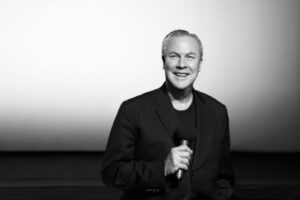
Robert Wilson. Photo by Lucie Jansch.
RW: Again, let me go back to the African American people. They were slaves in the United States but look at this body of music! It brings people together. For me, it was a very important event when Barack Obama, as the then President of the country, went to the funeral of a black boy who’s been murdered by the police. He gave a speech and then sang Amazing Grace. The president of my country. A Harvard-educated lawyer. Who brought health care to more Americans in the US. Before, we had no national policy to allow people access to health care. But the most important thing for me was when he stood up and sang an African American spiritual. Who would not cry at that? It united us. At a very complicated time with the murder of this black boy. Obama marched with the procession that Sunday morning, stood up and sang. Because the roots of African American spirituals are never negative. It is a form of protest, full of hope. I think that’s what art can do and what it means to do. Especially when the times are dark.
R: What would you suggest to the Hungarian students in these times? For the students of Freeszfe as well as for the others? You may know that both universities where one can get an officially recognized acting degree in Hungary are led by Attila Vidnyánszky.
RW: It’s very simple. Keep working and you’ll find something. I met Martha Graham, the American choreographer when I was 22. She asked me: What do you want to do, what do you want from life? I answered, I have no idea, I don’t do anything very well. She said: if you work long and hard enough, you’ll find something.
And I think 9 times out of 10 that doesn’t work. But just keep working. When I started, I had no theater, no money. I took the jobs I could. I was a waiter in an Italian restaurant; I was working with homeless people on the streets, for housewives in New Jersey, and so on. I just kept working. No one can take away your ability to think. Creativity can surface anywhere. It can happen in a free society and under pressure or with no money as well. We don’t know where it’s going to happen. But the most important thing, again: no one can stop you from thinking or working. Keep going!
This interview was recorded on 17 September 2021.
This article was originally published by Revizor on September 18, 2021, and has been reposted with permission. To read the original article, click here.
This post was written by the author in their personal capacity.The opinions expressed in this article are the author’s own and do not reflect the view of The Theatre Times, their staff or collaborators.
This post was written by Panni Néder.
The views expressed here belong to the author and do not necessarily reflect our views and opinions.

